- Bernard Preston homepage
- Our green garden
- Dig for Dignity
Dig for dignity
Dig for dignity because these days it has become incredibly difficult to get fresh nosh that's not been smothered in toxic pesticides. It will also lift us from the boredom of too little to do in our retirement.
Living on the fruits of our labour brings both a dignity and an abundance that the dole can never provide. Whilst one cannot expect to be entirely free and independent of the supermarket and the farmers’ supply, we continue to aim high.
Dig for dignity
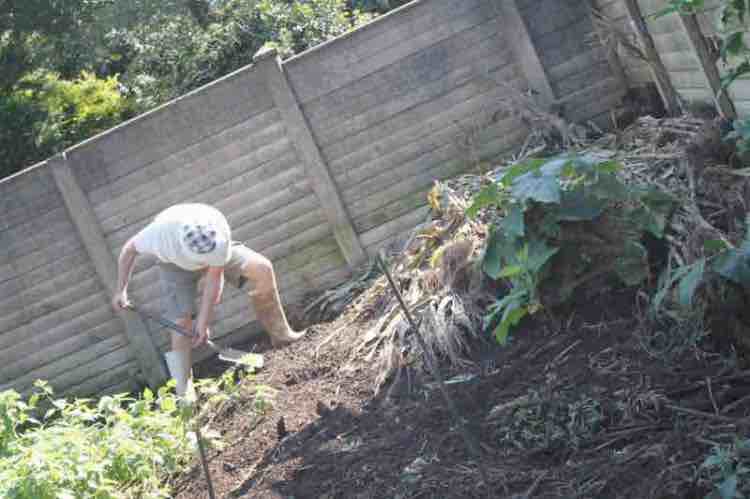
And in truth there is no limit to how high you can reach. Our green garden continues, every week to provide many times in excess of the R350 basic income monthly-grant. Moreover it is highly nutritious and tasty food.
The profoundly satisfying taste of
fruit freshly-picked from the garden is without equal; greens and beans just
harvested too. Then you’ll begin to understand why TV
and social media have such a small hold on us. You will be home and dry if you can add a sweet young mealie, peas and a few hens for their fresh eggs.
Corn on the cob
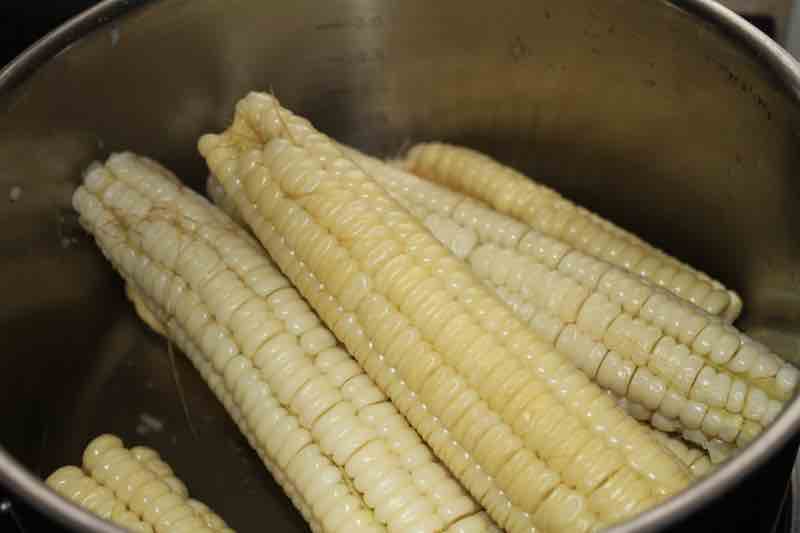
"An estimated 98-million more people experienced moderate to severe food insecurity in 2020 compared with the average over the previous thirty years."
- Lancet Countdown
I’m deeply saddened by those in the Department of Welfare and others distributing food parcels who still think that ultra refined super-maizemeal can provide the nutrients found in “corn on the cob;” or our wholegrain grits.
Yellow wholegrain grits provides large amounts of beta-carotene, the precursor of vitamin A.
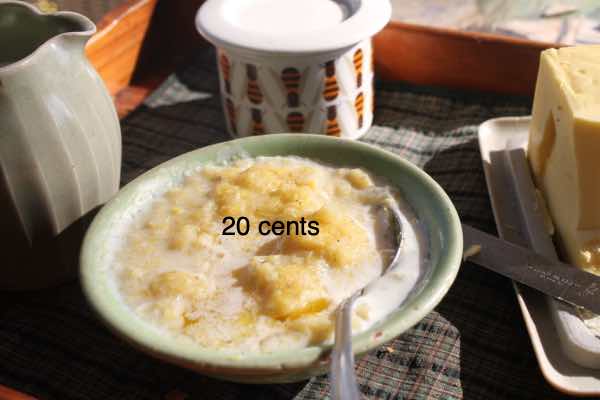
A mealie has a taste to die for and does little to raise our blood glucose, irrefutably fingered in many of the serious chronic degenerative diseases like diabetes; and makes us vulnerable to attack during flu season.
There are times when I will admit that I wonder if we are quite mad. Just digging out 600 dead mealie-stalks in the last few weeks can only be described as a labour of love; it’s hard work. This wet autumn I have learned that compared to previous years the task is much easier than when left until the ground has become crusted and dry.
When mealies get a little hard, learning how to make homemade cornbread will extend the nutrition for a few more weeks.
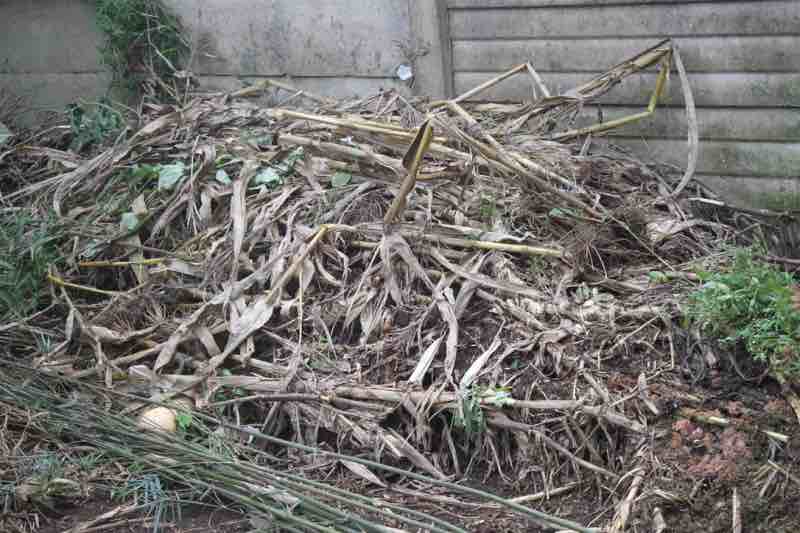
Those dried-out stalks of course form the foundation of our many compost heaps; a dry to wet ratio of about 2 to1 is advisable. We dither between using autumn leaves to add to that pile, or as a mulch between the winter veggie plants[2]; the rainy season will soon be over.
One compost heap will be reserved for the giant butternut and pumpkins that our garden is renowned for; our own seed will be planted in spring. The others provide the humus that will be spread in late winter; before they are sodden and difficult to move after the rains have started.
No expensive inorganic fertilisers are needed in our green garden; plentiful wood ash from the little woodstove is the alternative to lime.
Butternut are a great source of beta-carotene
20 children die every single day in South Africa from a beta-carotene deficiency, many of them after becoming blind; it's the precursor of vitamin A.
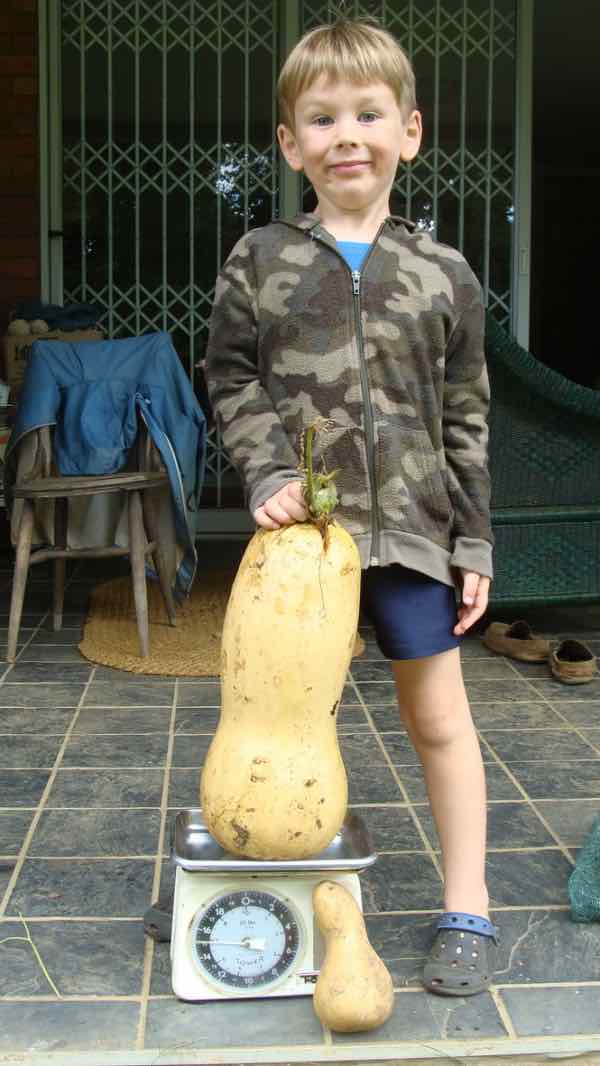
Planting many different coloured fruits and vegetables is high on our agenda; the strong research that seven or more of such enjoyed each day will reduce the all-cause of death by 35% has made a huge impression on us. We would rather spend the hours digging for dignity than consulting doctors; and the undertaker long before our time.
Maize stalk borers according to Pannar consume about ten percent of the crop in South Africa. The larvae hibernate over winter in the stubble and especially down by the roots. Whacking each stalk on a brick removes the soil and exposes most of the pests; the retinue of hens following me have a field day.
We encourage the hens to scratch in the compost heaps too; their droppings add nitrogen and promote aerobic decay.
In days of old a labourer was given a tin of toxic insecticide to shake into the end of each cob; today it’s more sophisticated I suppose. Either way, I can do without that stuff in my food. We harvest the mealies in the normal way, breaking off the tip if it is infected by stalk-borer; and again the hens squabble hilariously over the delicacies. Little is lost to the pest.
Eighty years ago the people of Great Britain were starving; the war had cut off their supply routes and there was little imported food to be had. “Dig for Victory” became the slogan of the day; and they started in earnest. Lo and behold, it soon became apparent they could grow most of their needs.
Peppers are a great source of antioxidants
If the world is wearying and social media ceases to satisfy, try digging for dignity. You too can harvest a mountain of food from your own green garden; your family need never go hungry again.
Whether it’s for hunger, dignity or simply the joy of growing your own delicious fresh food, is
it perhaps time for you to start digging?
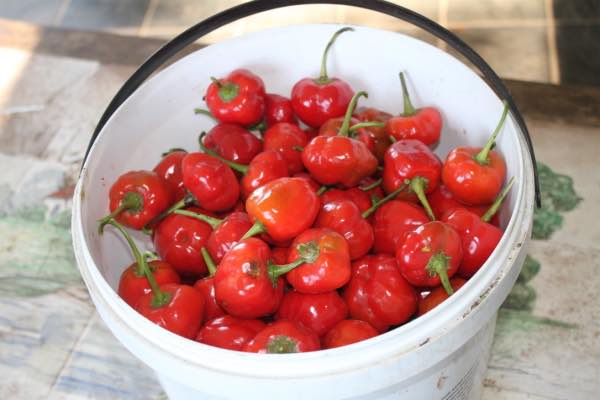
The horrible hump
"The camel's hump is an ugly lump,
Which well you may see at the zoo;
But uglier yet is the hump we get
From having too little to do.
The cure for this ill is not to sit still,
Or frowst with a book by the fire;
But to take a large hoe and a shovel also
And dig till you gently perspire.
And then you will find that the sun and the wind,
And the Djinn of the garden too,
have lifted that horrible hump that is black and blue.
- Rudyard Kipling
Dig for dignity
Dig for dignity and a mountain of nutritious, cheap food; it will also lift that horrible hump that settles on our shoulders periodically from having too little to do.
Broad beans are the only source of pharmaceutical amounts of dopamine, the happy hormone. I manage the nasty tremor in my right hand with them; Parkinson's Disease lurks. They are also known as favas in Europe.
Don't ever skin them; it raises the GI alarmingly.
Fava beans for happiness
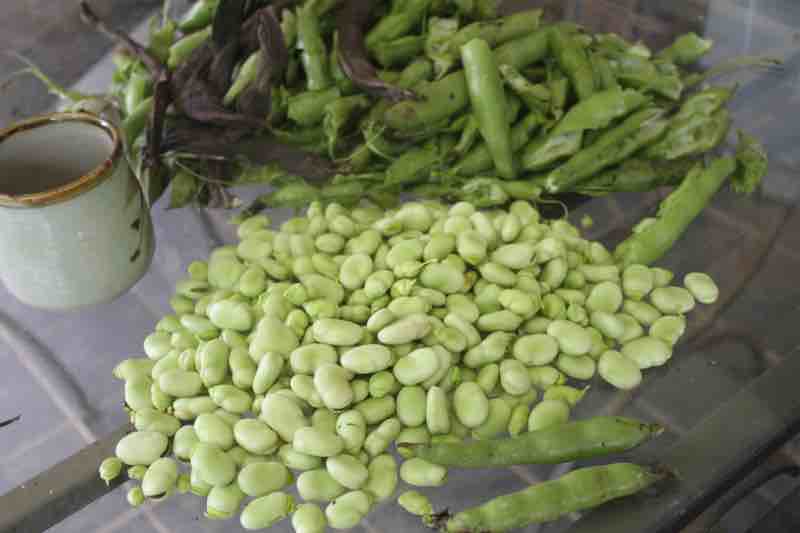
At the end of the season, having reaped for several months, this is what I gathered yesterday from just three broad bean plants. Legumes save us from two great evils; being constantly hungry and having stunted children. They are the only legume reputed to be a "complete" protein; having all the essential amino acids like cheese, eggs and meat.
They give us the satiety we need, the so-called subsequent meal effect, so we don't feel the need to snack constantly[3]; and the protein the Little People must have.
How to plant broad beans is essential in our opinion; they're awful when old and starchy. They are also the only common source of L-dopa, the happy hormone.
They need to be watered in the dry months so a thick layer of mulch is helpful.
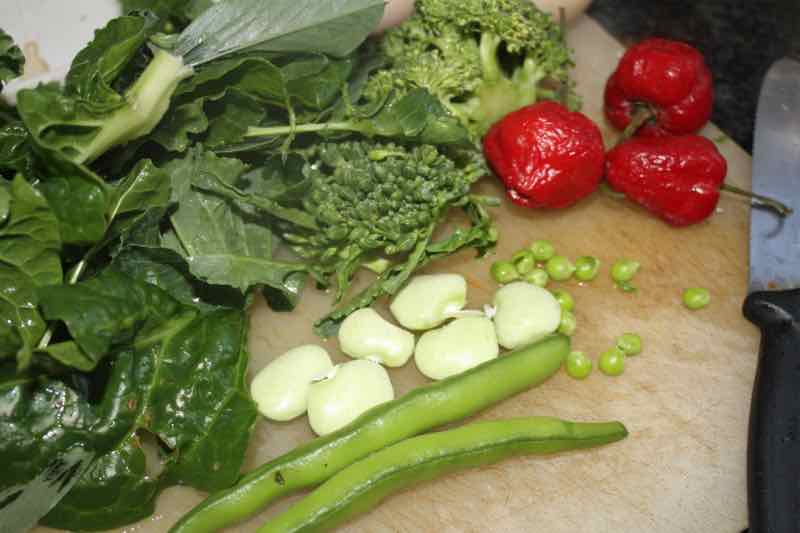
Those enjoying these kinds of foods never become obese. The benefits are only to be had should we be willing to dig for dignity and the pot. They do need to be chewed thoroughly; they are high in fibre. According to the Cancer Forum we should eat legumes at every single meal.
That probably seems absurd; could you manage once every day?
When browsing use right click and "Open Link in New Tab" or you may get a bad gateway signal.
Newsletter
Our newsletter is entitled "create a cyan zone" at your home, preserving both yourself and Mother Earth for future generations; and the family too, of course. We promise not to spam you with daily emails promoting various products. You may get an occasional nudge to buy one of my books.
Here are the back issues.
- Lifestyle and ideal body weight
- What are ultra-processed foods?
- Investing in long-term health
- Diseases from plastic exposure
- Intensive lifestyle management for obesity has limited value
- A world largely devoid of Parkinson's Disease
- The impact of friendly bacteria in the tum on the prevention of cancer
- There's a hole in the bucket
- Everyone is talking about weight loss drugs
- Pull the sweet tooth
- If you suffer from heartburn plant a susu
- Refined maize meal and stunting
- Should agriculture and industry get priority for water and electricity?
- Nature is calling
- Mill your own flour
- Bake your own sourdough bread
- Microplastics from our water
- Alternative types of water storage
- Wear your clothes out
- Comfort foods
- Create a bee-friendly environment
- Go to bed slightly hungry
- Keep bees
- Blue zone folk are religious
- Reduce plastic waste
- Family is important
- What can go in compost?
- Grow broad beans for longevity
- Harvest and store sunshine
- Blue zone exercise
- Harvest and store your rainwater
- Create a cyan zone at your home
Did you find this page interesting? How about forwarding it to a friendly book or food junkie? Better still, a social media tick would help.
- Bernard Preston homepage
- Our green garden
- Dig for Dignity
Address:
56 Groenekloof Rd,
Hilton, KZN
South Africa
Website:
https://www.bernard-preston.com